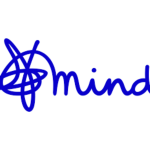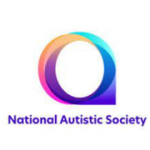Many things can cause or bring on depression, some of these can include;
Life events
Upsetting or stressful life events, like moving home or losing a loved one, can be difficult times with lots of emotions and feelings. This could be a trigger for the onset of depression.
Illness
Chronic, long-term illness and health conditions can leave you more vulnerable to developing depression. Some conditions can be the direct cause of depression, while others may be the indirect cause.
If you are worried, make an appointment to speak to your GP to discuss your concerns.
Genetics
Research shows that those with a family history of depression have an increased risk of developing depression at some point in their lives.
Personality
Personality traits such as low self-esteem and being overly self-critical can make you more likely to develop depression.
Rumination/ over thinking
Thinking about negative events and emotions repeatedly can lead to a focus on sad or undesirable experiences.
These cycles of thought can have a negative impact on mental health and lead to depressive episodes for some autistic people.
Societal pressure
Pressures to feel or experience things in a certain way can have a negative effect on a person’s mental wellbeing. The constant need to try and conform to these expectations can add or create feelings of low mood and or depression.
Bullying and social isolation
Being bullied can have a big impact on mental health and increase feelings of not belonging or not fitting in.
This can result in depressive thoughts and feelings and may lead to thoughts of self-harm.
If you are experiencing thoughts of self-harm, it is important to talk to someone to get help. Call the Samaritans on 116 123 and speak to someone now.
Sleep and exercise
Poor or little sleep and lack of exercise can significantly contribute to feelings of low mood. This can make it harder for you to cope with things going on in your life.
Diet
A lack of regular balanced meals can result in poor nutrition. Nutrition plays an important role in the body’s overall health and wellbeing. If you are worried about your diet, make an appointment to speak to your GP to get some help and support with your nutrition.
Medication
Starting a new medication or changing existing ones can sometimes affect your mood. If your symptoms persist, speak to your GP for advice on what to do.
Depression has a range of different symptoms that can affect your mental and physical wellbeing.
Symptoms can vary from person to person and can include:
- Continuous low mood or sadness
- Feeling tired or sleepy all the time
- Feeling helpless and/or hopeless
- Feeling that you are not good enough
- Feeling like you want to cry all the time or crying uncontrollably
- Lack of interest and joy in activities you once enjoyed
- Fluctuating mood, for example, you may feel sad then ok and then sad again
- Feeling irritable or angry (more than usual)
- Avoiding people, you normally interact with for example friends and/or family
- Changes to your appetite or weight
- Lack of energy
- Moving or talking slower than usual
- Sleep that is more disturbed than usual
- Thoughts of suicide, death or self-harm
Click here to take a look at some of the treatment options for depression.
Resources to help
Please note, these services are not autism specific. You may find it helpful to tell the person you speak to that you are autistic. Explain what they can do to help you, e.g. use clear language, speak slowly and give you time to process the information, give opportunities for you to ask questions to clarify your understanding.
If you have urgent mental health concerns, – for example thoughts about harming yourself – or suicide – you can call NHS 111 and press option 2.
You will be put through to a qualified call handler, who will be able to give you the advice and support you need.
This service is totally free and confidential and operates 24 hours a day, seven days a week
It is for all ages – so you can call this number if you are a parent or carer and need urgent mental health advice and support for a child or young person.
Alternatively, you can visit https://111.nhs.uk/ and follow the on screen instructions. This service is also staffed by the same qualified call handlers. It operates 24 hours a day, seven days a week and is free and confidential.
Please note however that this NHS 111 line is not an emergency service. Where
there is an immediate, serious and life-threatening emergency, you must call 999 or attend A and E.
Other options for non-urgent situations:
- Speak to your GP and tell them how you are feeling
- Talk to a friend, family member or someone you trust and tell them how you are feeling
-
- Talk to the Samaritans on 116 123 or email them at jo@samaritans.org anytime of day, 24 hours a day
- Call Hopelineuk: 0800 068 4141 (operating 9am to 12 midnight)
- SHOUT The UK’s first 24/7 crisis text service, provides free, confidential, 24/7 text message support in the UK for anyone who is struggling to cope. This service is free on all major mobile networks, for anyone in crisis, anytime.Text SHOUT to 85258
-
Remember: if there is a risk to life call 999 or go to any hospital A&E department






